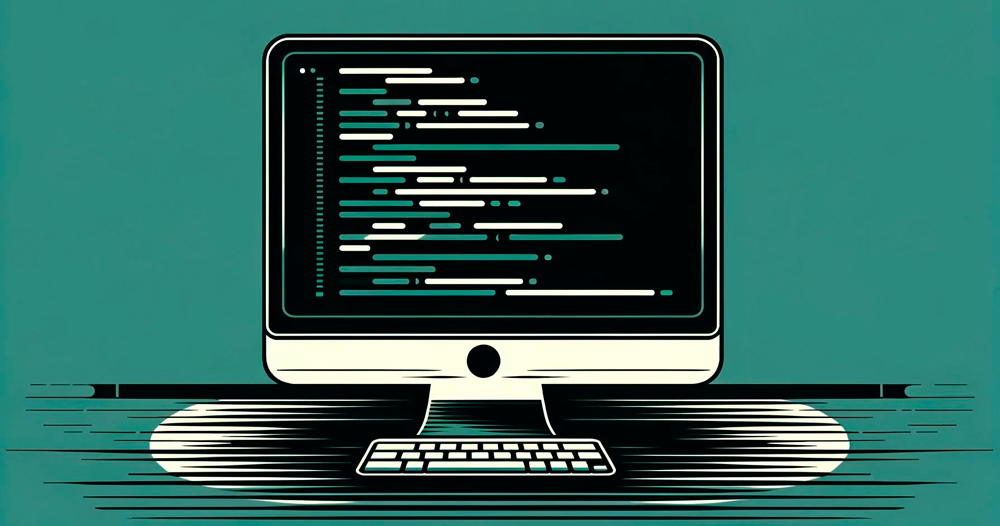When considering a career in software engineering, it’s essential to distinguish between the glossy portrayal often seen in media and the genuine day-to-day experience. The question “is software engineering hard?” is not just about the complexity of the work but also about reconciling the expectations with the reality of the profession.
Table of contents
Introduction
Many enter the field with the notion of a “dream job” — flexible hours, high salaries, and the thrill of creating cutting-edge technologies. While these aspects can be true, is it hard to be a software engineer? Absolutely. The job involves tackling intricate problems, meeting tight deadlines, and often working beyond the standard 9-to-5 workday. Moreover, the pressure to deliver flawless code can be intense, especially in environments that follow a rapid release cycle.
Education Pathways
The journey to be a software engineer typically starts with a solid educational foundation in computer science or a related field. This can be achieved through traditional university degrees, coding bootcamps, or self-taught methods. Each pathway requires a significant investment of time and effort, and the learning curve can be steep.
- University Degree: A four-year commitment with a broad theoretical base.
- Coding Bootcamps: Intense, short-term training focused on practical skills.
- Self-Learning: Flexible but requires immense discipline and motivation.
Regardless of the path chosen, the skills required extend beyond coding proficiency. Problem-solving, critical thinking, and the ability to work collaboratively are just as crucial. The difficulty lies not only in learning new languages and tools but also in developing the soft skills necessary to thrive in a team environment.
Continuous Learning
One of the most challenging aspects of software engineering is the need for continuous learning. The field evolves rapidly, with new languages, frameworks, and best practices emerging regularly. Thus, software engineering is hard because it demands a lifelong commitment to education. To stay relevant, engineers must adapt and learn, often on their own time.
- Stay Updated: Regularly follow industry news, blogs, and forums.
- Practice: Build personal projects or contribute to open-source software.
- Networking: Attend conferences, workshops, and meetups.
Challenges and Hardships
Software engineering is a field that’s as challenging as it is rewarding. The question often arises: “How hard is software engineering?” The answer lies in the myriad of challenges and hardships that engineers face throughout their careers.
Balancing Work-life
A common issue in the tech industry is finding the right balance between work and personal life. Software engineering is hard not just because of the technical challenges, but also due to the demands it places on one’s time and mental health. Stress management becomes a crucial skill, as the pressure to deliver complex projects on time can lead to burnout. Here are some ways software engineers can manage stress and maintain work-life balance:
- Prioritize Tasks: Use tools like Trello or Asana for task management.
- Set Boundaries: Clearly define work hours and stick to them.
- Relaxation Techniques: Incorporate activities like yoga or meditation into your routine.
Navigating Innovation
The tech industry is characterized by a dichotomy between innovation and conservatism. Engineers must often strike a balance between pushing the envelope with new technologies and adhering to established, more conservative approaches that have stood the test of time. This balancing act can be tricky, as software engineer difficulty often involves advocating for modern solutions while ensuring reliability and security.

Coping with Incompetence and Uncertainty in Projects
Every software engineer will at some point face the twin challenges of incompetence and uncertainty within project teams. Not everyone will have the same skill level or commitment, which can lead to frustration and project delays. Moreover, projects often come with a degree of uncertainty, whether it’s an unclear client brief or shifting project requirements. To handle these challenges, consider the following:
- Mentorship: Offer guidance to less experienced team members.
- Continual Learning: Stay on top of new trends to reduce uncertainty.
- Flexible Planning: Adopt agile methodologies to accommodate changes.
Practical Aspects of Being a Software Engineer
Code Maintenance
In the trenches of software development, the significance of documentation and code maintenance cannot be overstated. Documentation is the roadmap that guides future engineers through the complexities of the code, ensuring that the wisdom of today is not lost tomorrow. It’s a beacon for maintenance, scaling, and enhancement of software systems. Here’s how to excel at it:
- Keep it Updated: Regularly review and revise documentation to reflect current code states.
- Be Clear and Concise: Write documentation that is easy to understand, avoiding jargon where possible.
- Incorporate Examples: Use code snippets and workflow diagrams to illustrate complex points.
Dealing with Technical Debt
Technical debt is a reality for many software engineers, referring to the extra development work that arises when code that is easy to implement in the short run is used instead of applying the best overall solution. Technical debt accumulates over time, like financial debt, and can bog down a project if not managed properly. To mitigate this:
- Identify and Track: Use tools to identify areas of code that require refactoring.
- Prioritize: Determine which debt has the most significant impact and address it first.
- Allocate Time: Dedicate a portion of the development cycle to reducing technical debt.
The Everyday Reality
Contrary to the popular belief of building new, shiny features or creating products from scratch, much of a software engineer’s life is spent navigating and enhancing existing codebases. These codebases can be intricate labyrinths of past decisions and outdated practices. To thrive in this environment:
- Understand Before Changing: Spend time comprehending the code before attempting to alter it.
- Refactor Gradually: Make incremental improvements rather than attempting large-scale overhauls.
- Embrace Testing: Implement comprehensive testing to ensure that changes don’t break existing functionality.
Key Competencies
Navigating the world of software engineering requires more than just technical know-how, it demands a set of key competencies and a mindset geared towards innovation and collaboration. To answer the question, “is software engineering hard?”, one must look at the skills that make an engineer successful in this challenging field.

Thinking Like a Designer
To be a software engineer is to think like a designer, where user-centric design is paramount. This approach prioritizes the needs and experiences of the end-user, ensuring that the software is not only functional but also intuitive and enjoyable to use. Here’s how to adopt this mindset:
- Empathize with Users: Regularly engage with users to understand their needs and challenges.
- Iterative Design: Implement a cycle of designing, testing, and refining to perfect the user experience.
- Visualize Solutions: Use wireframes and prototypes to bring ideas to life before coding begins.
The Role of Effective Communication
Software engineering is hard without effective communication and collaboration. These soft skills are essential in a field where complex projects require the synergy of a diverse team. To foster a collaborative environment:
- Active Listening: Be present in discussions and value the input of your colleagues.
- Clear Articulation: Convey your ideas and concerns in a manner that is accessible to all team members.
- Feedback Channels: Establish open channels for constructive feedback to promote continuous improvement.
Adapting to Changing Requirements
The dynamic landscape of technology means that software engineers must be proactive problem-solvers, ready to adapt to changing requirements. This agility is crucial, as it allows engineers to pivot quickly and find solutions to unforeseen challenges. To cultivate this adaptability:
- Anticipate Change: Stay ahead by anticipating industry trends and potential pivots in project requirements.
- Cultivate Flexibility: Be open to new ideas and approaches, and willing to discard what isn’t working.
- Continuous Skill Development: Keep your skills sharp with ongoing education and practice.
Conclusion
Software engineering is hard, but it’s also a field ripe with opportunities for those who embrace its complexities. Recognizing the diverse challenges — from technical debt to the need for continuous learning — is the first step towards harnessing the true rewards of the profession.
Preparing for a career in software engineering means committing to an ever-evolving journey of learning and growth. It’s a path that requires resilience, creativity, and a passion for technology. For those wondering how hard is software engineering, it’s as challenging as it is rewarding, and for many, that’s precisely what makes it worth pursuing.
In summary, the journey to be a software engineer is not a path of least resistance. It’s a demanding yet fulfilling voyage through a landscape of innovation, collaboration, and relentless problem-solving. The software engineer difficulty is real, but with the right competencies and approaches, it’s a role that offers immense satisfaction and endless opportunities for those who are up for the challenge.






